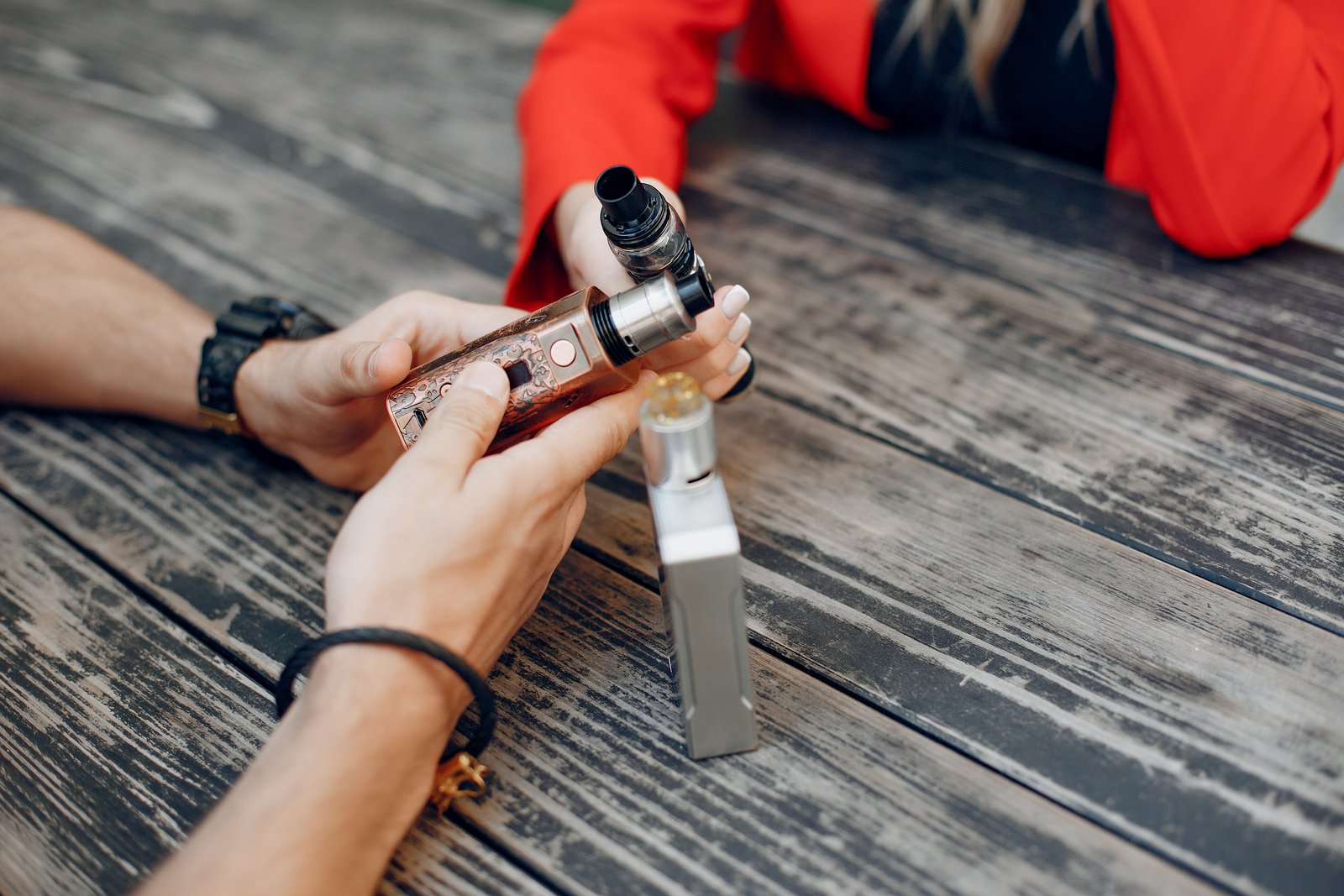
Can Vaping Cause Hair Loss?
While vaping is considered less harmful than smoking, its long-term effects are still uncertain, especially when it comes to hair loss. Smoking is known to cause hair thinning or balding, and with vape liquids containing chemicals similar to those in cigarettes, the question arises: can vaping also contribute to hair loss?
This blog explores this issue by Dr. Philip Solomon and Dr. Mark Korman, board-certified ENT surgeons in Vaughan, Toronto, and Davenport with over 40 years of combined experience in hair transplant procedures like FUE and FUT.
What is Vaping?
Vaping involves the use of an e-cigarette, which heats a liquid containing nicotine, flavourings and chemicals to produce vapour, which is then inhaled. Although vaping is often seen as a less harmful alternative to smoking, experts such as Dr. Philip Solomon and Dr. Mark Korman, who have extensive experience with FUE and FUT hair transplants, stress that it is essential to understand the potential risks, including those to the health of your hair.
Does Vaping Cause Hair Loss?
Although research into the direct link between vaping and hair loss is limited, the similarities between vaping and smoking suggest potential problems. Nicotine, a common component of vapes, can contribute to hair loss through:
- Constricting Blood Vessels: Nicotine reduces blood flow to hair follicles, depriving them of oxygen and essential nutrients for healthy growth.
- Oxidative Stress: Vaping can increase free radicals in the body, causing oxidative stress and potentially affecting the cells in hair follicles.
- Hormonal Effects: Nicotine intake can elevate androgens, hormones that play a role in hair growth regulation. Elevated androgen levels may lead to or worsen conditions like androgenic alopecia (pattern baldness).
These effects explain why hair restoration experts such as Dr Philip Solomon and Dr Mark Korman, with their extensive experience of FUE and FUT hair transplants, recommend caution regarding vaping and its potential impact on hair health.
Is Vaping as Bad for Your Hair as Smoking?
Although it is suggested that vaping is less harmful than smoking, it is essential to note that vaping still contains nicotine, which can have a negative effect on hair. Cigarettes contain harmful substances such as hydrogen cyanide, which directly affects the oxygen supply to hair follicles. Vaping products generally contain less nicotine and do not contain these harmful chemicals, but they still present risks. Doctors Philip Solomon and Mark Korman, who have more than 40 years of experience in hair transplants, point out that nicotine from any source can interfere with hair growth.
Can Nicotine-Free Vaping Cause Hair Loss?
Nicotine-free vaping is an option for some, and while it may reduce the risk of hair loss, the research is not yet conclusive. Some studies suggest that the flavourings in vaping liquids can cause inflammation of white blood cells, which could disrupt the functions needed for healthy hair growth. Experts such as Dr Philip Solomon and Dr Mark Korman, who have extensive experience treating hair loss with FUE and FUT procedures, advise caution as further research is needed.
If I Stop Vaping, Will My Hair Grow Back?
The good news is that if vaping is the cause of your hair loss, stopping vaping should allow your hair follicles to recover over time. Doctors Philip Solomon and Mark Korman, highly experienced in hair transplant procedures such as FUE and FUT, believe that once your body is no longer exposed to harmful chemicals, your hair follicles can begin to repair themselves. If your hair has not grown back after several months, this may be due to other factors that need to be considered.
Other Causes of Hair Loss
While vaping may contribute to hair loss, other factors could also be at play. These include:
- Pattern Baldness: A genetic condition affecting millions, pattern baldness can lead to progressive hair loss in both men and women.
- Stress: High stress levels can trigger temporary hair loss, often resolving once the stress is alleviated.
- Nutritional Deficiencies: Lack of essential nutrients like iron, zinc, and vitamin D can lead to hair thinning.
- Medications: Certain medications, including chemotherapy and antidepressants, can cause hair loss.
Can I Vape After a Hair Transplant?
After undergoing a hair transplant, such as FUE, it is best to avoid smoking or vaping for at least 30 days. According to Dr. Philip Solomon and Dr. Mark Korman, board-certified ENT surgeons with over 40 years combined experience in FUE and FUT procedures, chemicals such as nicotine can reduce blood flow to hair follicles, essential for healing and growth after a transplant. Not smoking gives your newly transplanted hair grafts the best chance of success.
For personalized advice or more information on hair loss and treatments, Dr. Philip Solomon and Dr. Mark Korman at Follicle HT can help you explore your options.
Book a consultation by visiting – FUE hair Transplant Toronto or call us at – (905) 764-7799
